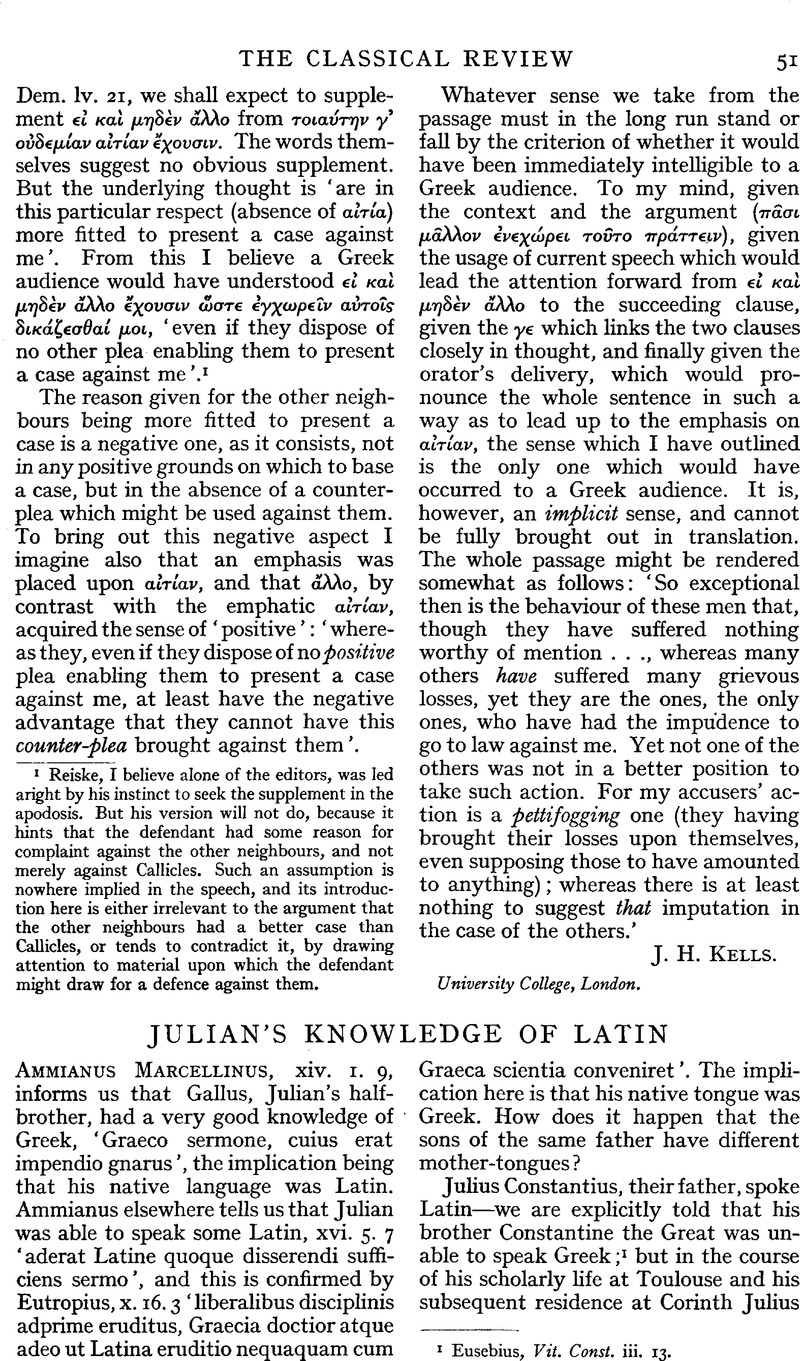No CrossRef data available.
Published online by Cambridge University Press: 27 October 2009

page 51 note 1 Eusebius, Vit. Const, iii. 13.
page 52 note 1 Dessau, 1237, with Seeck, P.-W. iii. 1981, Zw. R. 1. 1187.
page 52 note 2 Seeck, P.-W. x. 93, s.v. ‘Julianos’ (32). His identity was established by Bidez, , Mélanges Paul Thomas, pp. 57 ff.Google Scholar, cf. his edition of Julian's Lettres, p. 71. 13 with crit. n. So Julian may have had Semitic blood in his veins.
page 52 note 3 Julian, Misop. 352 a-b.
page 52 note 4 Vie de, LaI'Empereur Julien, pp. 52 f.Google Scholar
page 52 note 5 Bidez, Vie, pp. 52 f.; cf. Eunapius, Vit. Soph. p. 473. 50 ff. (p. 428 in the Loeb edition, ed. Wright).
page 52 note 6 Libanius, Or. xviii. 21. This is not to say, however, as Koch does, Revue beige de philologie et d'histoire, 1927, p. 125, n. 4, that Julian was already well enough educated in Latin atConstantinople: Koch presses this passage of Libanius unduly.
page 52 note 7 Libanius, Or. i. 97, cf. Greg. Naz. Or. iv. 30.
page 52 note 8 Ammianus xvi. 5. 10; cf. Cicero, ad Att. v. 15. 3, Quintilian, v. 11. 21.
page 52 note 9 Ep. 8, 9, cf. 13, ed. Bidez.
page 52 note 10 Ammianus xvii. 11. 1.
page 53 note 1 Or. ii. 77 d. We do not hear that Constantius knew much Greek.
page 53 note 2 Ep. ad Ath. 284 d. Is his use of τριακοσιοστ⋯ς (wrongly changed toτριακοστ⋯ς by Hertlein and Wright) in the same pamphlet, 276 a, an echo of the Latin use of trecenti to denote an indefinitely large number?
page 53 note 3 Gothofredus on Cod. Theod. xi. 39. 5; and seehis n. on vi. 24. 1 for the use of Greek in Julian's laws. Greek occasionally occurs in laws issued before Julian's time, e.g. viii. 15 I.
page 53 note 4 Bidez, Lettres, preface, p. iii; Borries, P.-W. x. 83.
page 53 note 5 Untergang, iv. 458 f.
page 53 note 6 But Ammianus, who was himself at that time learning Latin with very considerable success, may not have been very charitable to his struggling fellow-student: Julian's speeches to the army, which must have been delivered in Latin, were always very moving, cf. Hermathena, lxii, forthcoming.